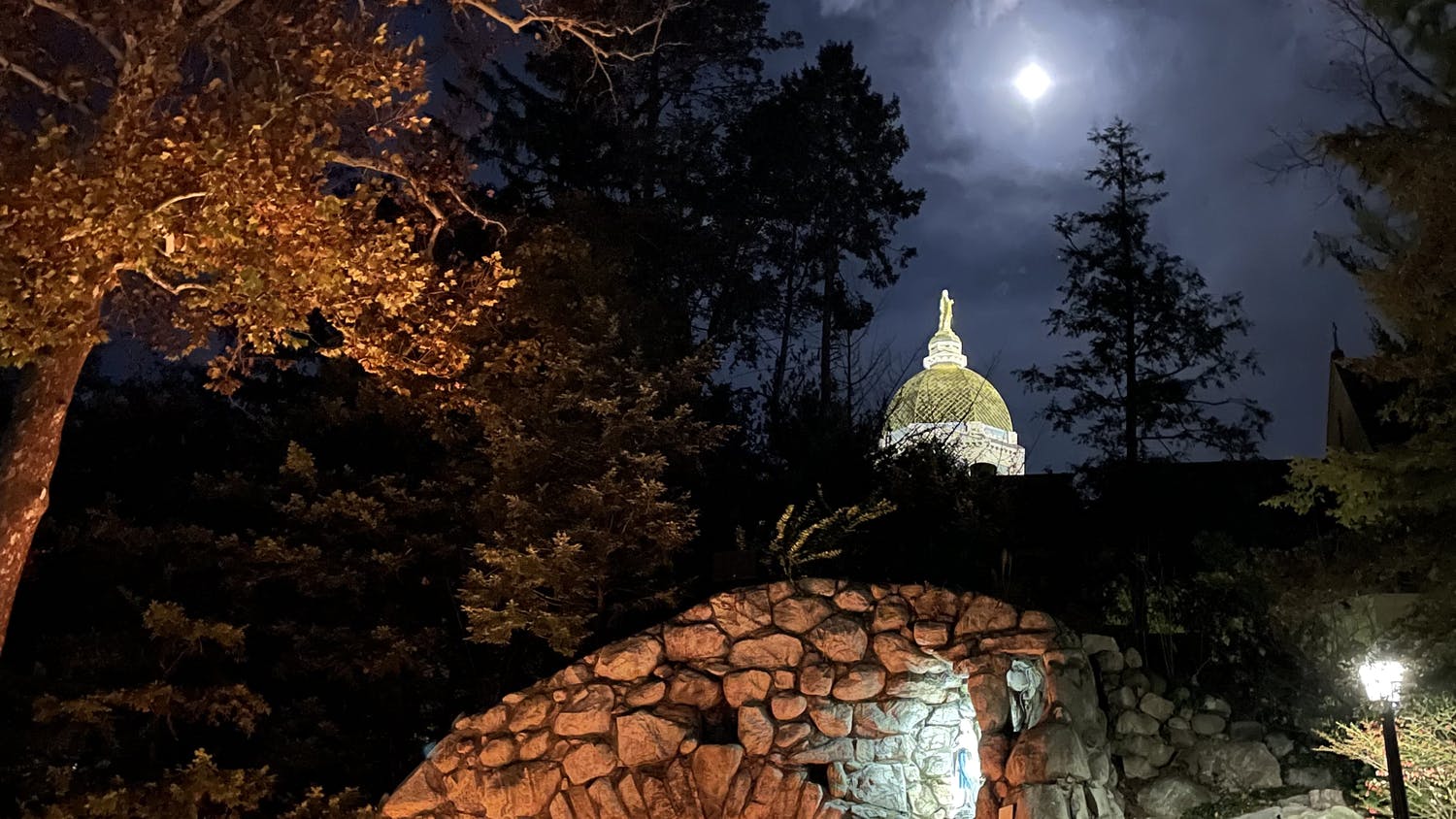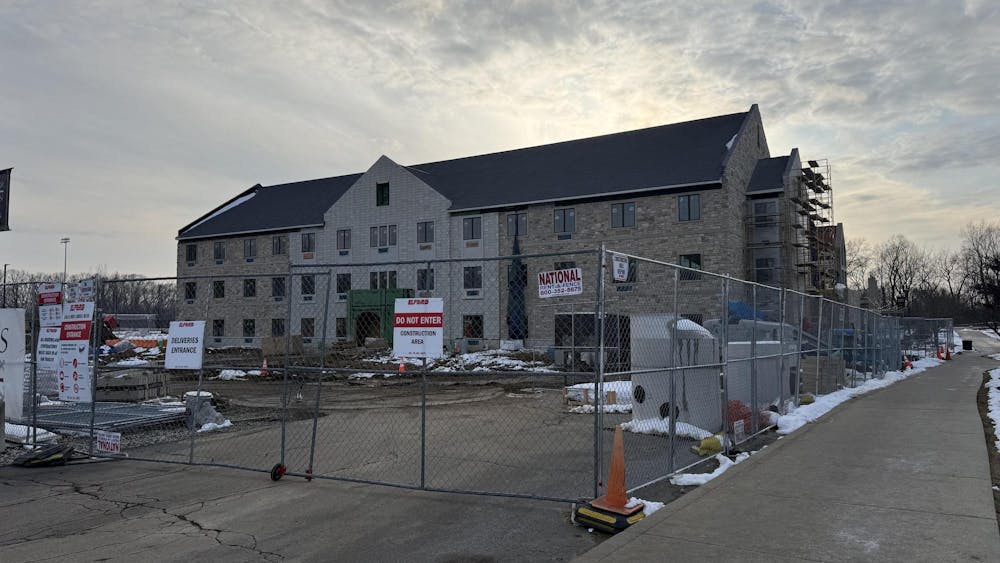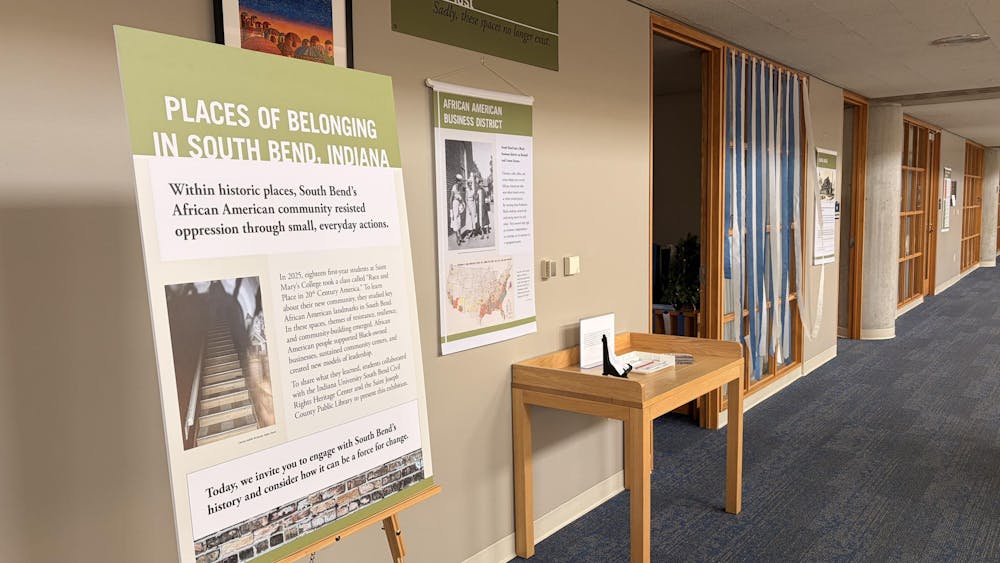Charles Scicluna, Archbishop of Malta and face of the Vatican’s fight against clerical sex abuse, spoke with members of the tri-campus community on the Church’s sexual abuse crisis Wednesday evening in the Dahnke Ballroom.
The event was part of the 2019 ND Forum, “Rebuild My Church: Crisis and Response.” John Allen, Vatican reporter and editor for online Catholic news publication Crux, moderated.
With decades of experience investigating clerical abuse, Scicluna has long been held up as an authority on the crisis. In 1995, he was appointed deputy promoter of justice at the Vatican’s Supreme Tribunal of the Apostolic Signatura, the Church’s highest court. In 2002, he transitioned to promoter of justice in the Congregation for the Doctrine of the Faith (CDF), the governing body responsible for addressing the clergy sexual abuse crisis. Scicluna was promoted to secretary adjunct of the CDF in 2018.
Since his appointment at the Vatican, Scicluna has led numerous investigations into the crisis and met with hundreds of survivors. He has also worked to expand definitions for ecclesiastical crimes and the statutes of limitations for reporting cases of abuse.
Scicluna shared his takeaways after speaking with survivors of clergy abuse. He said to make progress addressing the crisis, Church leaders must make an active effort to engage with survivors.
“When you meet a person who has gone through this immense tragedy personally … you understand [the crisis] better,” he said.
The Church has been slow to respond to the crisis, but has made tangible steps forward, Scicluna said.
He said he wished February’s Vatican summit had been more constructive, but named a new Church law outlining stricter guidelines for handling abuse cases as a major fruit of the meeting.
Under the May 7 mandate, Church leaders must report all cases of abuse to their superiors, Scicluna said. Dioceses have until June 1, 2020 to comply with the mandate.
“If we don’t get to this point, after a year we’ll be knocking on the door of the bishops,” he said.
Though he could not speak on the specifics of his investigations, Scicluna said more scandal has yet to surface in the U.S.
“The United States … [has] to be prepared for another wave of traumatic narrative,” he said.
Scicluna said the limitations of the 2002 Charter for the Protection of Children and Young People — also known as the Dallas Charter — hindered the United States’ Conference of Catholic Bishops’ (USCCB) progress in addressing the crisis.
Though the charter established landmark standards for handling cases of clergy sexual abuse, it only applies to priests and deacons, omitting bishops from its purview.
“The deficit of the 2002 Dallas Charter was the fact that it talked about abuse or violence committed by deacons and by priests, and the bishops did not include themselves in the category of possible addressors and perpetrators,” he said.
Archbishop of Baltimore William Lori, who spoke at another Notre Dame Forum event Sept. 25, was among those who helped draft the charter.
Before the event transitioned to an open Q&A, two students were invited to ask pre-prepared questions.
Senior Cecily Castillo asked how the Vatican grapples with geopolitical diversity in enforcing Church doctrine.
Scicluna acknowledged global communities are at different stages in addressing the crisis, which he attributed to a difference of culture.
“You need to empower a community, but you need to be patient,” he said.
Chase Soukup, another senior, asked Scicluna if he believes there is any connection between abuse and the clerical vow of celibacy.
“My take is simple, and I don’t want to be reductive on it,” Scicluna said in response. “If we have to follow celibacy — that is, chastity and celibacy — there would not be misconduct. So I can’t blame something that tells me to behave and then say it’s because of this law.”
Priests who break clerical celibacy lack vocational commitment, he added.
“You see priests failing in such an important commitment, you realize that in most cases there was a difficulty to live celibacy because people were not in love,” he said. “In order to be chaste in celibacy, you need to be in love — in love with Jesus and with the people of God.”
Scicluna then answered questions from the audience; four live and two via an online portal.
(Editor’s note: Did you submit a question online that didn’t get answered? Let us know. Email us at news@ndsmcobserver.com)
One audience member, who said he was a priest with the Legionaries of Christ, asked Scicluna how to cope when trusted Church leaders commit abuse.
Scicluna said the Church must learn to separate clergy from faith.
“I think that we leaders, we ministers — you and me — need to be humble enough to tell our people, ‘It is not about me. It is about Jesus Christ,’” he said.
Graduate student Kevin Doherty asked Scicluna why offending priests are often promoted several times before they are exposed — even when their abuse is an “open secret” among high-ranking clergy.
“I don’t have the answers to that, but I tell you they are legitimate questions,” Scicluna said.
Scicluna closed by inviting the audience in prayer for the end of clergy abuse and the protection of the Church’s young and vulnerable.
“I think that we owe it to the innocence of our young people and our kids, whatever it takes, to defend their innocence, their faith and their integrity,” he said.
Archbishop and clergy abuse investigator engages tri-campus community on Church crisis
Mary Steurer | The Observer
Maltese Archbishop Charles Scicluna speaks Wednesday in the Dahnke Ballroom. Scicluna, who is one the Vaican’s leading investigators of clerical sex abuse, spoke about ways to combat the ongoing abuse crisis in the Catholic Church.









